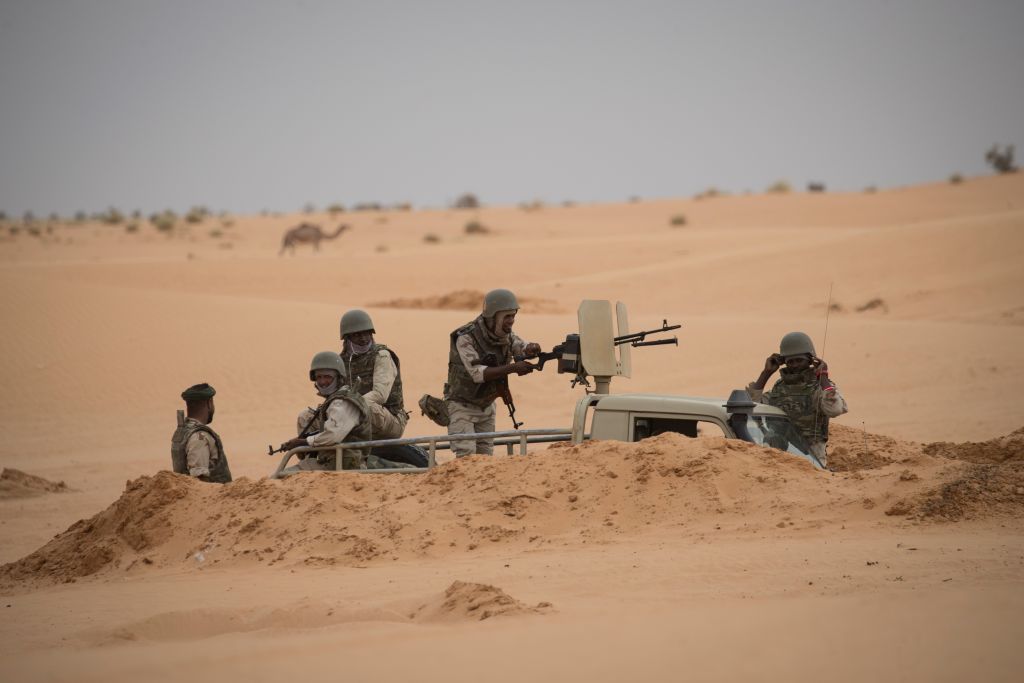ADF STAFF
Mali’s decision to quit the G5 Sahel Joint Force in May has sent ripples of insecurity across the region.
In speaking to the United Nations Security Council at the time, U.N. Assistant Secretary-General for Africa Martha Ama Akyaa Pobee called Mali’s withdrawal “unfortunate” and “regrettable.”
“It is most certainly a step back for the Sahel,” she said on May 18.
Pobee, who also called into question the future of counter-terrorism efforts in the region, is part of the U.N. departments of Political and Peacebuilding Affairs and Peace Operations.
“It is perhaps time to rethink our approaches and change the way we do our work,” she said. “We need innovative approaches in the face of the constantly evolving tactics of terrorist groups, whose influence keeps expanding.”
Known as the epicenter of terrorism in the Sahel, Mali has suffered from years of instability in the form of multiple militant extremist organizations, two military coups within nine months and the chaotic presence of Russian mercenaries.
The Sahel has seen a devastating expansion of terrorism in recent years, and violent insurgent movements have become a major problem for much of West Africa.
As stakeholders in and around the Sahel ponder new approaches to countering terrorism, a revival of the G5 is just one option. A number of bilateral and multilateral, African-led and internationally backed joint military forces are taking shape.
- Most of the G5 countries, even those with military junta leaders, have signed agreements and pledged to fight terrorism with bilateral military cooperation. Niger and Burkina Faso carried out their third joint operation in April called Taanli 3.
- Increasingly under attack in its northern provinces that border Burkina Faso, Benin has beefed up its response, which reportedly includes the expected signing of a security agreement with Rwanda.
- Leaders of the Economic Community of West African States agreed on December 4 to create a regional force to intervene in emergency situations.
However, the future of the G5 Sahel force and the U.N. peacekeeping mission in Mali (MINUSMA) remain a central focus.
The defense ministers and chiefs of staff of the remaining G5 Sahel countries — Burkina Faso, Chad, Mauritania and Niger — met in September to consider a “new strategy.”
Niger Minister of Defense Alkassoum Indatou told reporters that the G5 Sahel suffers from a “problem of cohesion and unity of action … which has been damaged since the withdrawal of Mali.”
Calls to review MINUSMA’s mandate grew louder after France withdrew its forces and ended its counter-terrorist Operation Barkhane.
Experts, such as Crisis Group CEO Comfort Ero, say the U.N. needs to play more of a supporting role.
“Conflicts involving nonstate armed groups — including [extremist] groups — will be a source of instability in Africa for some time to come,” she said. “Robust, African-led missions are well positioned to counter these threats, but they can only be effective if they are properly and reliably resourced.
“Like it or not, the best way to resource these missions is through some sort of U.N. mechanism.”
Since it was formed in 2017, the G5 Sahel force struggled with capacity and funding issues.
Hassane Koné, senior Sahel researcher at the South Africa-based Institute for Security Studies, said the tri-border area where Mali, Niger and Burkina Faso meet, also known as Liptako-Gourma, has become a hive of insurgent activity that demands a coordinated response.
“A military reconfiguration is taking place in the region,” he wrote on November 14. “If Mali were to rejoin the G5 Sahel, the force’s revised operational concept could direct the bulk of its personnel to the Liptako-Gourma area.”
Rising death tolls and mass displacement in the Sahel have underscored the level of suffering and emergency.
In another U.N. Security Council briefing on November 16, Pobee emphasized the urgent need for “a coordinated breakthrough in our response to violent extremism.”
“If we fail in this effort, the effects of terrorism, violent extremism and organized crime will be felt far beyond the Sahel region and, indeed, the African continent.”

